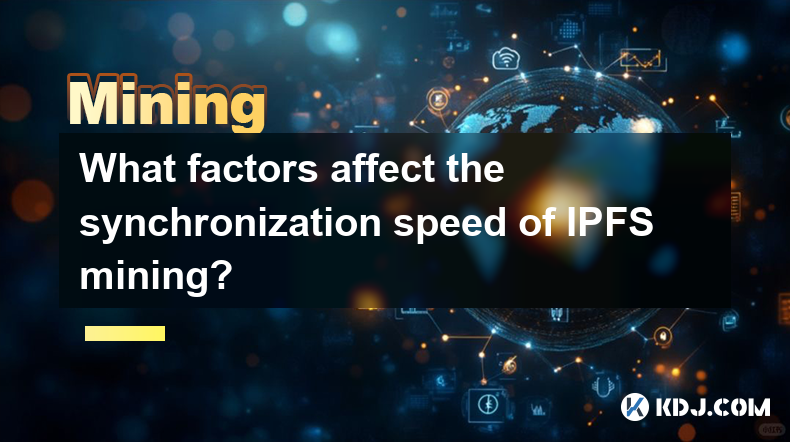-
 Bitcoin
Bitcoin $93,239.3085
1.77% -
 Ethereum
Ethereum $1,784.8978
4.89% -
 Tether USDt
Tether USDt $1.0000
-0.07% -
 XRP
XRP $2.2120
2.67% -
 BNB
BNB $604.0460
-0.82% -
 Solana
Solana $149.4763
3.19% -
 USDC
USDC $0.9999
-0.01% -
 Dogecoin
Dogecoin $0.1789
4.07% -
 Cardano
Cardano $0.6978
6.07% -
 TRON
TRON $0.2456
-0.23% -
 Chainlink
Chainlink $14.8407
7.04% -
 Sui
Sui $2.9603
20.75% -
 Avalanche
Avalanche $22.2500
2.75% -
 UNUS SED LEO
UNUS SED LEO $9.0778
0.74% -
 Stellar
Stellar $0.2671
2.73% -
 Shiba Inu
Shiba Inu $0.0...01354
2.80% -
 Toncoin
Toncoin $3.1620
5.39% -
 Hedera
Hedera $0.1805
1.91% -
 Bitcoin Cash
Bitcoin Cash $358.3454
0.27% -
 Polkadot
Polkadot $4.0786
4.22% -
 Litecoin
Litecoin $82.9465
-0.35% -
 Hyperliquid
Hyperliquid $18.4109
-2.14% -
 Dai
Dai $1.0000
0.01% -
 Bitget Token
Bitget Token $4.5164
-0.15% -
 Ethena USDe
Ethena USDe $0.9993
-0.05% -
 Pi
Pi $0.6588
3.17% -
 Monero
Monero $227.3040
2.01% -
 Uniswap
Uniswap $6.0263
6.88% -
 Pepe
Pepe $0.0...08871
5.28% -
 Aptos
Aptos $5.3498
4.34%
What factors affect the synchronization speed of IPFS mining?
IPFS synchronization speed hinges on several factors: network congestion, hardware (CPU, RAM, SSD), internet bandwidth/latency, software configuration, data size/location, peer availability, and available storage.
Mar 04, 2025 at 06:01 am

Key Points:
- Network Congestion: High network traffic significantly impacts synchronization speed.
- Hardware Specifications: Processor speed, RAM, and storage capacity directly influence performance.
- Internet Connection: Bandwidth and latency are crucial for efficient data transfer.
- Software Configuration: Properly configured IPFS node software optimizes synchronization.
- Data Size and Location: Larger datasets and geographically distant peers slow down synchronization.
- Peer Availability and Connectivity: The number and responsiveness of connected peers are vital.
What Factors Affect the Synchronization Speed of IPFS Mining?
IPFS (InterPlanetary File System) mining, or more accurately, participating in the IPFS network as a node, involves synchronizing a portion of the global IPFS network's data onto your local machine. The speed of this synchronization depends on several interconnected factors. Understanding these factors is crucial for optimizing your IPFS node's performance.
1. Network Congestion:
The IPFS network, like any decentralized network, experiences periods of high congestion. When many nodes are simultaneously requesting or sharing data, the overall network speed slows down. This congestion directly impacts your synchronization speed, leading to longer wait times for data blocks. Choosing a less congested region or time of day might improve synchronization.
2. Hardware Specifications:
Your computer's hardware plays a significant role in IPFS synchronization speed. A faster processor, more RAM, and a large, fast storage drive (SSD recommended) all contribute to quicker processing and data transfer rates. Insufficient hardware can bottleneck the process, drastically reducing synchronization speed. Upgrading your hardware can significantly improve performance.
3. Internet Connection:
A robust internet connection with high bandwidth and low latency is paramount for efficient IPFS synchronization. Low bandwidth limits the amount of data you can download per unit of time, while high latency introduces delays in data transmission. A stable, high-speed connection is essential for optimal synchronization speeds.
4. Software Configuration:
The IPFS software itself needs to be correctly configured. This includes optimizing settings like the number of concurrent connections, the amount of memory allocated to the IPFS daemon, and ensuring the software is up-to-date. Incorrect configuration can lead to suboptimal performance and slower synchronization.
5. Data Size and Location:
The size of the data you are trying to synchronize directly impacts the time it takes. Larger datasets naturally take longer to download and process. The geographical location of the data and peers also plays a role. Synchronizing data from peers located far away will be slower due to increased latency.
6. Peer Availability and Connectivity:
The number of peers connected to your node and their responsiveness significantly influence synchronization speed. A well-connected node with many active peers will generally synchronize faster than an isolated node with few connections. Ensuring your node is properly connected and participating actively in the network is key.
7. Storage Capacity:
The amount of available storage space on your machine is another critical factor. If your storage is nearing capacity, the synchronization process may slow down or even halt. Sufficient free space is essential for smooth operation. Regularly monitoring and managing storage space is crucial.
8. Data Locality:
Data locality refers to how close the data you're downloading is to your physical location. If you're downloading data from peers geographically closer to you, the synchronization speed will generally be faster due to reduced latency. Conversely, downloading from distant peers will result in slower speeds.
9. Background Processes:
Other processes running on your computer can compete for resources, slowing down IPFS synchronization. Closing unnecessary applications and freeing up system resources can improve the synchronization speed. Resource monitoring tools can help identify processes consuming excessive resources.
10. Network Protocols:
The underlying network protocols used by IPFS can influence synchronization speed. IPFS utilizes various protocols for data transfer, and the efficiency of these protocols can vary. Keeping your IPFS software updated often incorporates improvements in these protocols, resulting in better synchronization performance.
Frequently Asked Questions:
Q: My IPFS node is synchronizing very slowly. What should I do?
A: Check your internet connection, hardware specifications, software configuration, and the amount of free storage space. Consider upgrading your hardware, optimizing your software settings, and ensuring your internet connection is stable and high-speed. Also, monitor for network congestion.
Q: Does the type of storage (HDD vs. SSD) affect IPFS synchronization speed?
A: Yes, significantly. SSDs offer much faster read and write speeds compared to HDDs, resulting in considerably faster synchronization.
Q: How can I improve the number of peers connected to my IPFS node?
A: Ensure your firewall isn't blocking IPFS traffic, and consider using a bootstrap node list from a reputable source. A well-configured node with good network connectivity will naturally attract more peers.
Q: Is there a way to prioritize certain data during IPFS synchronization?
A: While IPFS doesn't offer direct prioritization features for individual files, optimizing your hardware and network connection will indirectly improve the overall synchronization speed, effectively prioritizing all data.
Q: What is the typical synchronization time for a new IPFS node?
A: There is no single answer; it depends heavily on all the factors mentioned above, including available bandwidth, hardware, and the size of the IPFS network at the time. It could range from hours to days or even weeks.
Disclaimer:info@kdj.com
The information provided is not trading advice. kdj.com does not assume any responsibility for any investments made based on the information provided in this article. Cryptocurrencies are highly volatile and it is highly recommended that you invest with caution after thorough research!
If you believe that the content used on this website infringes your copyright, please contact us immediately (info@kdj.com) and we will delete it promptly.
- Solaxy (SOLX) Presale Hits $30 Million as Meme Coin Hype Builds
- 2025-04-24 04:05:14
- From Meme to Millions: How to Repeat Dogecoin's Wild Ride in 2025
- 2025-04-24 04:05:14
- Bitcoin Pepe (BPEP) Presale Nears $7M as Meme Coin Demand Stays Hot
- 2025-04-24 04:00:26
- Even After Three Years, Tesla Still Holds Its 11,509 BTC
- 2025-04-24 04:00:26
- Bitcoin (BTC) institutional investors piled over eleven times the all-time average into the US spot Bitcoin exchange-traded funds (ETFs) on April 22.
- 2025-04-24 03:55:12
- Former President Donald Trump is throwing a special dinner for the top 220 holders of his official memecoin, $TRUMP.
- 2025-04-24 03:55:12
Related knowledge

How to judge the stability and reliability of the mining pool?
Apr 19,2025 at 02:08pm
When engaging in cryptocurrency mining, choosing the right mining pool is crucial for maximizing your returns and ensuring a stable mining experience. The stability and reliability of a mining pool can significantly impact your overall success in mining. Here, we will explore the key factors to consider when evaluating the stability and reliability of a...

How to deal with abnormal noise during mining machine operation?
Apr 17,2025 at 01:35am
Mining machines are essential tools for cryptocurrency miners, but they can sometimes produce abnormal noises that may indicate underlying issues. Understanding how to identify and address these noises is crucial for maintaining the efficiency and longevity of your mining equipment. This article will guide you through the process of dealing with abnorma...

How to choose the right ASIC mining machine model?
Apr 21,2025 at 08:00am
Choosing the right ASIC mining machine model is crucial for maximizing your returns in cryptocurrency mining. The market offers a variety of ASIC miners, each with its own set of specifications and performance metrics. Understanding the key factors that influence your choice can help you make an informed decision that aligns with your mining goals and b...

How to maintain anonymity when mining?
Apr 17,2025 at 06:01pm
Maintaining anonymity when mining cryptocurrencies is crucial for many miners who wish to protect their privacy and security. This article will guide you through various strategies and tools that can help you achieve a high level of anonymity while engaging in mining activities. Understanding the Importance of Anonymity in MiningAnonymity in the context...

How to automate mining tasks through scripts?
Apr 18,2025 at 01:29pm
In the world of cryptocurrency, mining remains a crucial activity for generating new coins and securing blockchain networks. Automating mining tasks through scripts can significantly enhance efficiency and reduce manual labor. This article delves into the intricacies of automating mining tasks, providing a comprehensive guide on how to achieve this usin...

How to switch mining algorithms in the mining pool?
Apr 18,2025 at 12:00pm
Switching mining algorithms in a mining pool can be a strategic move for miners looking to optimize their mining operations. This process involves several steps and considerations, and understanding how to navigate it can significantly impact a miner's efficiency and profitability. In this article, we will explore the detailed steps required to switch m...

How to judge the stability and reliability of the mining pool?
Apr 19,2025 at 02:08pm
When engaging in cryptocurrency mining, choosing the right mining pool is crucial for maximizing your returns and ensuring a stable mining experience. The stability and reliability of a mining pool can significantly impact your overall success in mining. Here, we will explore the key factors to consider when evaluating the stability and reliability of a...

How to deal with abnormal noise during mining machine operation?
Apr 17,2025 at 01:35am
Mining machines are essential tools for cryptocurrency miners, but they can sometimes produce abnormal noises that may indicate underlying issues. Understanding how to identify and address these noises is crucial for maintaining the efficiency and longevity of your mining equipment. This article will guide you through the process of dealing with abnorma...

How to choose the right ASIC mining machine model?
Apr 21,2025 at 08:00am
Choosing the right ASIC mining machine model is crucial for maximizing your returns in cryptocurrency mining. The market offers a variety of ASIC miners, each with its own set of specifications and performance metrics. Understanding the key factors that influence your choice can help you make an informed decision that aligns with your mining goals and b...

How to maintain anonymity when mining?
Apr 17,2025 at 06:01pm
Maintaining anonymity when mining cryptocurrencies is crucial for many miners who wish to protect their privacy and security. This article will guide you through various strategies and tools that can help you achieve a high level of anonymity while engaging in mining activities. Understanding the Importance of Anonymity in MiningAnonymity in the context...

How to automate mining tasks through scripts?
Apr 18,2025 at 01:29pm
In the world of cryptocurrency, mining remains a crucial activity for generating new coins and securing blockchain networks. Automating mining tasks through scripts can significantly enhance efficiency and reduce manual labor. This article delves into the intricacies of automating mining tasks, providing a comprehensive guide on how to achieve this usin...

How to switch mining algorithms in the mining pool?
Apr 18,2025 at 12:00pm
Switching mining algorithms in a mining pool can be a strategic move for miners looking to optimize their mining operations. This process involves several steps and considerations, and understanding how to navigate it can significantly impact a miner's efficiency and profitability. In this article, we will explore the detailed steps required to switch m...
See all articles
























































































